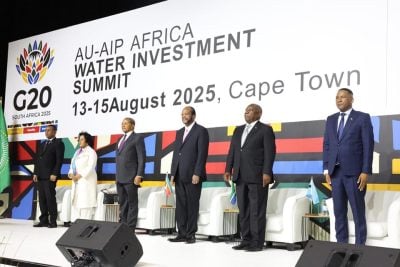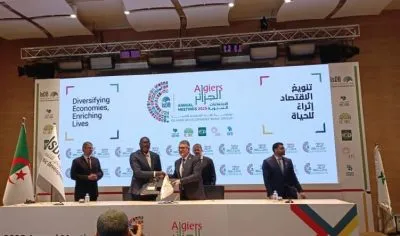This article was produced with the support of United Nations Economic Commission for Africa (ECA)
According to Hanan Morsy, Deputy Executive Secretary and Chief Economist at the United Nations Economic Commission for Africa, the continent is highly vulnerable to the effects of climate change, despite being the least responsible for it.
She noted that while Africa needs about $2.8 trillion to finance its nationally determined contributions, only about $300 billion has been made available to the continent, leaving a $2.5 trillion financing gap.
With so many African countries at risk of debt distress, the inadequacy of financing further heightens their vulnerabilities.
“The financing that comes to Africa for clean energy technology is only 2% of the global financing available and this can lead us into a vicious cycle where we have investment shortfalls that actually make us more exposed to climate change.
This erodes the fiscal space, compounding other challenges and increases the cost of financing. For many African countries, this means choosing between investing in social services or climate action and servicing debts.
Addressing these challenges will require action at all levels. Morsy proposed that countries must mobilise more domestic revenue and private sector capital, establish financial frameworks for sustainable development and utilise green, blue, and sustainability bonds to fund development projects.
As a continent, Africa must also build agile multi-country frameworks to manage disasters and leverage carbon assets. Green industrialisation, particularly in mineral value chains and carbon credit markets, will enhance competitiveness and trade opportunities, she said.
Furthermore, Africa’s potential in the battery and electric vehicle value chain presents opportunities for sustainable job creation, with regional partners collaborating on establishing value chains and special economic zones to foster innovation and growth in the sector.
To address financial challenges effectively, Morsy said it will be necessary to scale up concessional finance, bolster the capacities of multilateral development banks, strategically allocate development funds and implement robust debt resolution frameworks.
Africa’s vast resources, Morsy said, present an opportunity to finance its transition to sustainability. “Africa has a potential to address a third of global needs. We need to leverage the vast renewable energy resources that we are blessed with and make sure that we are compensated for solving the problems of climate change,” she insisted.


 Sign in with Google
Sign in with Google 





